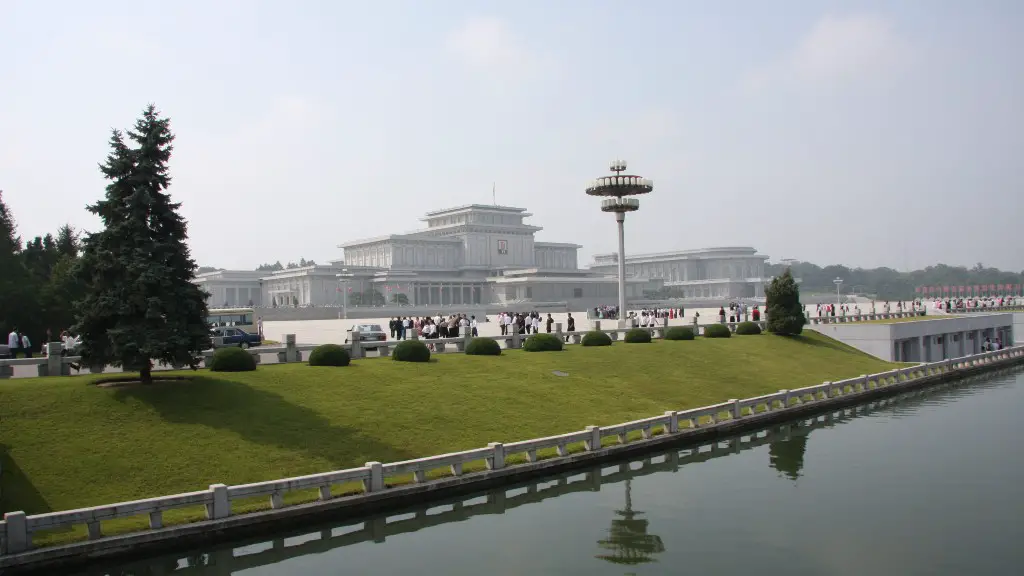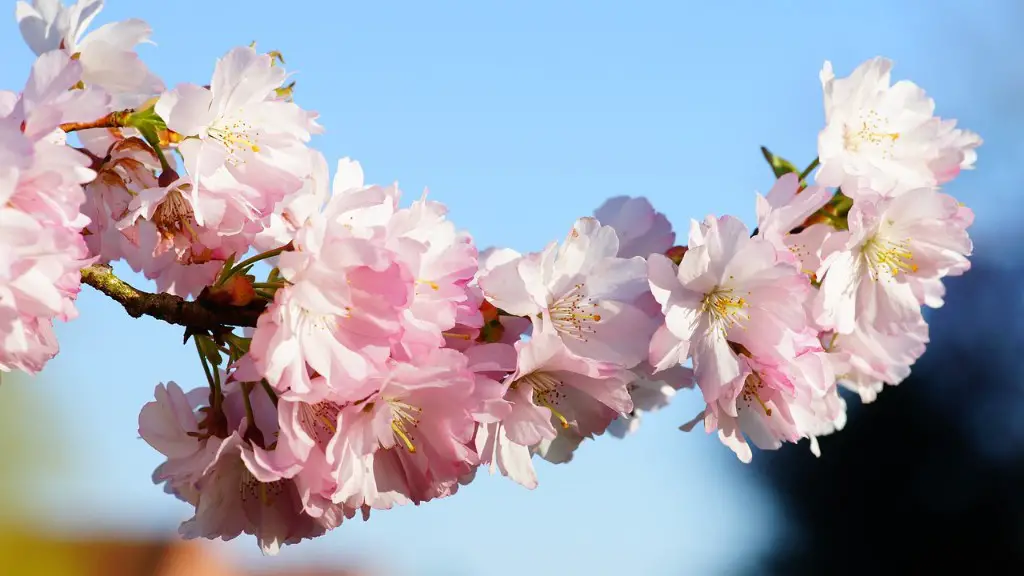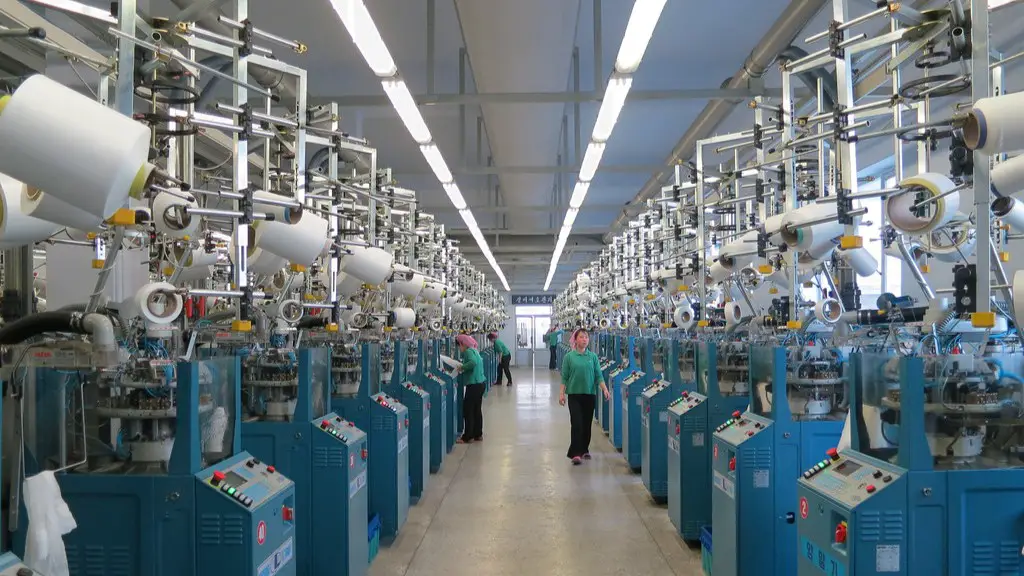Political System
North Korea has a multi-party system which consists of 8 officially sanctioned parties, but only one actually holds any power. They are the Workers’ Party of Korea (WPK), which is a communist party, the General Association of Korean Residents Abroad (Chongryon), and a further 6 smaller parties. The WPK is the only governing party and is said to have a monopoly on power. It was born out of a merger between two parties and was founded in 1949. It is currently headed by Kim Jong Un and its main goal is the reunification of both Koreas and the implementation of Marxism-Leninism.
North Korea is a highly centralised, authoritarian state with a one-party system. The WPK holds absolute control over the political system, controlling all bodies of the state including the Supreme People’s Assembly, the Central Military Commission, the National Defence Commission, and the Workers’ and Social Democratic Parties. It also holds sway over all media outlets, including television, radio, and newspapers.
Legislature
North Koreas legislature is the Supreme People’s Assembly (SPA). It is a unicameral system with 687 seats, 654 of which are appointed by the WPK while the remaining 33 are contested in periodic elections. The SPA itself has no significant power and is largely symbolic; it only meets once or twice a year to approve motions made by the WPK. The SPA is chaired by the Supreme Leader, currently Kim Jong Un.
Economy
North Korea’s economy is centrally-planned and reliant on state-owned enterprises. It is heavily reliant on outside trade and aid, particularly from China. It runs a food rationing system in place and relies on imports of oil and other commodities. North Korea is meanwhile indebted to the international community for much of its economic activity and its currency, the North Korean won, is not traded in the international markets.
Culture
North Korean culture is heavily influenced by traditional Korean values, as well as Chinese, Russian and Japanese influences. Traditional culture can be seen in North Korean architecture, cuisine, art, and music. North Korean art often depicts scenes from North Korea’s past and from Kim Jong Un’s government. North Korean music is mostly folk or nationalistic in nature, with government-approved songs focusing on praise of the Kim family.
Foreign Relations
North Korea’s foreign relations have been strained for decades due to its nuclear weapons program and human rights abuses. It is currently isolated internationally, particularly after its 2018 summits with the United States and South Korea, where Pyongyang failed to denuclearise and both summits ended with few results. Furthermore, North Korea is heavily sanctioned by the international community due to its developing of nuclear weapons and alleged human rights abuses.
Internal Security
North Korea has a strict security apparatus to maintain internal control. Its security forces are said to be highly trained and equipped with modern weaponry and surveillance technology such as drones and satellites. The security forces are in charge of monitoring the population, stopping any dissent or opposition to the regime. Furthermore, the state maintains a vast prison camp system where prisoners are reported to face atrocities from extreme torture to public execution.
Social Participation
Social participation within North Korea is heavily restricted; citizens do not have access to the internet and are denied the freedom of speech, press and assembly. Furthermore, there is no democratically elected system within North Korea, and any form of protest or dissent is harshly punished. In spite of this, citizens do have access to education and healthcare, but their quality is said to be far below that of many other countries.
Lifestyle
Life in North Korea is largely characterised by poverty, shortages and repression. It is estimated that up to 60% of the population lives in poverty, while the average monthly wage is only $42. Despite this, North Koreans are said to have a great sense of resilience and cheerfulness. Citizens also have access to state-owned media and recreational activities, such as rollerblading, running, martial arts and fishing.
Societal Attitudes
Societal attitudes in North Korea are largely shaped by the government-sanctioned narrative which glorifies the WPK and its leadership. Citizens are taught to revere their leaders and to accept their authority as law. Furthermore, North Koreans often have a deep mistrust of foreigners and are wary of contact with them. Additionally, since North Korea operates on a state-controlled economy, citizens are often incentivised to exploit any opportunities to make money.
Religion
Religion in North Korea is largely state-controlled and the government only permits the practice of the indigenous religions of Cheondoism, Chondogyo or Korean Shamanism. Any other practice or belief is heavily persecuted, and religious groups have been known to be imprisoned and executed. Despite this, foreign missionaries are allowed access to the country, albeit under strict and heavily surveilled conditions.
Economic Status
North Korea experiences severe economic hardship. Its economic output compared to other countries is paltry, and its per capita gross domestic product is some of the lowest in the world. Its economy is entirely dependent on foreign trade and aid, particularly from China. Furthermore, it has limited access to the international financial markets due to trade sanctions imposed by the US, UN, and EU.
Technology Status
Although North Korea has made strides in the development of technology, its progress is far behind that of other countries. Despite the government investing heavily in the development of nuclear weapons, the country is still largely reliant on outside technology. A vast majority of citizens do not have access to the internet, and the government exercises tight control over what information is allowed to be disseminated.
Military Status
North Korea has one of the world’s largest standing armies and is said to possess thousands of tanks, artillery, aircrafts and ballistic missiles. The country also maintains a military-first policy and allocates a vast portion of its GDP towards the defence sector. North Korea is a nuclear-weapon state and is highly militarised, but its forces are largely outdated and are reliant on foreign assistance for fuelling and supplies.



